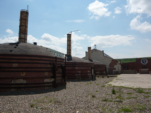Press freedom under attack after recent ruling by Supreme Court
By Medicine Hat News Opinon on December 8, 2018.
The Supreme Court of Canada delivered a massive blow to press freedom last week. In a 9-0 decision, the court ruled that Vice Media reporter Ben Makuch must provide the RCMP with all communications with suspected ISIS member Farah Mohamed Shirdon, a Calgary native who is believed to have been killed in a summer 2015 U.S. airstrike in Mosul, Iraq. This sets a dangerous precedent, particularly in conjunction with attacks on the media from U.S. President Donald Trump and federal Conservative leader Andrew Scheer. Perhaps no one put it better than Makuch himself. “It is truly a dark day for press freedom around the globe at a time where journalism is unquestionably under attack everywhere,” he tweeted in the wake of the ruling. As Vice’s lawyer Phillip Tunley said, this decision will very likely have a “chilling effect” on Canadian journalists. Who is going to trust journalists with sensitive information if they can be required to share it with law enforcement on command? People will think twice about sharing valuable information with the press if they run the risk of having law enforcement show up at their door. The behaviour of the RCMP in this case is more reminiscent of police states like Turkey (the world’s largest jailer of journalists) or Russia than a country like Canada, with its constitutionally-guaranteed right to a free press. All Canadians should be wondering how the RCMP was unable to acquire the information sought on Shirdon without breaching the sacrosanct trust between a reporter and their source. Supporters of the ruling will likely point out that Canada still has a free press. Journalists can publish whatever they like as long as they’re prepared to co-operate with law enforcement when asked to do so. But journalists aren’t simply appendages of the police. Our respective roles may often overlap, but sometimes we work at cross-purposes. In cases of police wrongdoing, for example, it often falls on the media to hold the powers that be to account. Some of the most valued pieces of journalism in the past half-century, from the Pentagon Papers to Edward Snowden’s NSA revelations, were based on classified information that was leaked to the press. Exposing the major wrongdoings of lying about the Vietnam war in the case of the Pentagon Papers, or warrantless surveillance by the NSA in Snowden’s case, clearly outweigh the relatively minor illegality of leaking classified documents. This isn’t to say journalists are above the law. Far from it. We’re justifiably expected to abide by publication bans and libel laws. But just as undercover police are protected from prosecution if they purchase drugs, because society recognizes the greater good served by what would otherwise be unsavoury behaviour, reporters must be protected from revealing sensitive source information. The Justice Centre for Constitutional Freedoms, which is constantly warning about the dangers of “compelled speech,” has curiously offered no position on this brazen, Supreme Court-sanctioned violation of Makuch’s constitutional rights. They have, after all, had a busy week fighting gay-straight alliances, which they regard as “ideological sexual clubs,” in court. The right to a free press is certainly more valuable to a liberal democratic society than the right to discriminate against LGBTQ people. Any civil libertarian worth their salt should be outraged by this assault on press freedom. (Jeremy Appel is a News reporter. To comment on this and other editorials, go to https://www.medicinehatnews.com/opinions.) 24-23



